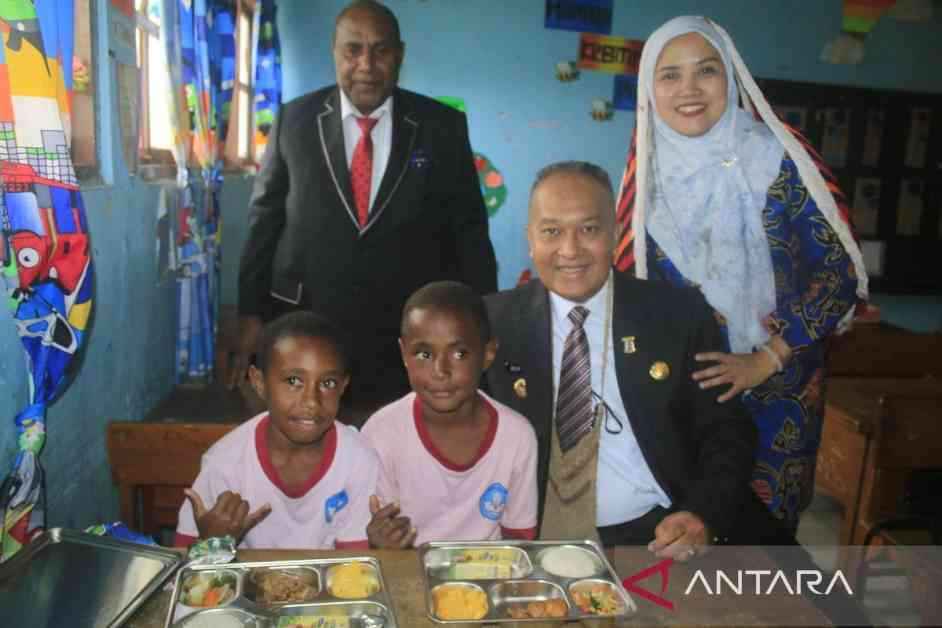In the heart of the lush Papua Highlands, a spirited discussion is underway regarding the implementation of the Free Nutritious Meals (MBG) program. Acting Governor Velix V. Wanggai has stood firm in his commitment to adapting this national strategic initiative to the unique local conditions, despite facing opposition from some local students. The debate surrounding the prioritization of free education versus free meals has sparked protests in the Yahukimo district of Papua Highlands, underscoring the complexities of aligning national agendas with regional needs.
Challenges and Adaptations
As the controversy unfolds, Wanggai remains resolute in his stance that Papua is an integral part of Indonesia, and as such, must align with national strategic programs. The need to adapt the MBG program to meet the specific dietary requirements of the Papua Highlands population highlights the importance of local context in policy implementation. By engaging key social institutions such as churches, dioceses, and foundation-run organizations that oversee schools at all levels, the provincial government aims to ensure the success of the MBG program while fostering community involvement.
In navigating the intricacies of rolling out the MBG program in the Papua Highlands, Wanggai has emphasized the integration of certified nutrition professionals accredited by the National Nutrition Agency. By involving youth in community kitchens and drawing on successful local initiatives such as the Sarasehan healthy school breakfast program in Tolikara and Lanny Jaya districts, the provincial government is taking proactive steps to ensure the well-being and economic growth of the region. This collaborative approach reflects a commitment to holistic development that prioritizes the needs of the local population.
Path to Progress
Looking ahead, the provincial government’s vision for the MBG program in the Papua Highlands is grounded in sustainability and inclusivity. By fostering partnerships with a wide range of stakeholders, from educational institutions to community organizations, Wanggai aims to create a comprehensive support system that addresses the multifaceted needs of the population. The focus on improving the well-being of the people in the Papua Highlands while stimulating economic growth underscores the government’s commitment to a balanced and equitable development strategy.
As the MBG program takes shape in this picturesque region, the journey towards implementation is marked by a spirit of collaboration and adaptation. By embracing local expertise and engaging with diverse voices, the provincial government is paving the way for a more resilient and thriving community. The fusion of national strategic goals with regional realities exemplifies a nuanced approach to policy-making that seeks to harmonize the aspirations of the people with the broader objectives of the state.
In conclusion, the unfolding narrative of the MBG program in the Papua Highlands encapsulates the complexities and potentialities inherent in the intersection of national agendas with local contexts. Through dialogue, adaptation, and a shared commitment to progress, Acting Governor Velix V. Wanggai and his team are charting a path towards a more inclusive and sustainable future for the region. The fusion of diverse perspectives and collaborative efforts underscores the transformative power of community-driven initiatives in shaping a brighter tomorrow.






















